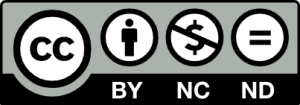(This is a chapter from Jack Glotzer’s memoir, I Survived the German Holocaust Against All Odds. Click here to return to the Table of Contents.)
This bilingual edition of Jack Glotzer’s memoir of Rohatyn, I Survived the Holocaust Against All Odds, is edited and translated from his original unpublished manuscript which was first assembled in English by Jack’s wife Beatrice (Bea) and her brother Alexander Walzer. A copy of the original memoir is among the Jack and Beatrice Glotzer Papers archived at the United States Holocaust Memorial and Museum (accession number 1997.44). A second edition was edited by us together with Jack’s son Mitchell and published online in 2018.
For this new edition, which was developed within the publications program of the Ukrainian Center for Holocaust Studies (UCHS) and with significant support from the Connecting Memory project, we aimed to preserve Jack’s clear voice in his words and his story, while annotating the text from UCHS historical analysis and our own research to provide additional historical and cultural context for both Ukrainian and English readers and correcting a small number of errors in the original text. These editorial remarks are indicated by “Ed.” in the footnotes; all other footnotes (in italics) are from Jack’s original text.
Most of the place names in the original version of this memoir were written according to Polish spelling using the official names of the Second Polish Republic; those have been retained in the current English-language edition. In the Ukrainian-language version, geographical names have been adapted to modern Ukrainian norms, except for cases where the names of places have changed significantly. Thus, in Ukrainian we write “Lwów” as “Lviv”, and we leave “Stanisławów” as “Stanislaviv” instead of using the modern name – “Ivano-Frankivsk”.
The topic of personal names deserves a special note. In Jewish families of Jack’s childhood region and era, it was traditional for individuals to have many names: those given by parents as well as a religious (Hebrew) name, one or more names for non-Jewish circles, affectionate forms of all these names, family nicknames, nicknames for friends, names for official Polish papers, etc. Since most assimilated Jewish families like Jack’s knew many languages and combined many traditions, even the forms of the same name could differ significantly depending on who spoke it. When translating the text into Ukrainian, we tried to reproduce the original versions of various names and surnames, comparing them according to several sources. For the reader’s convenience, we note all known names of Jack’s family members at the first mention of each, but later in the text we hold to just one of the options (as a rule, the one most often used by Jack himself). The recorded names of other mentioned people have been verified by referring to Glotzer family records, the Rohatyn Yizkor (Remembrance) Book, testimonies in the Yad Vashem Central Database of Shoah Victims’ Names, family records of the Jewish descendants’ online Rohatyn District Research Group, and the memoirs and testimonies of witnesses and other sources collected by the NGO Rohatyn Jewish Heritage; these names are also provided in the notes.
In Jewish tradition, names are important, and an essential element of remembrance. Jack writes that he and his wife Bea joined a group of fifty people who went to Rohatyn in 1998 to dedicate monuments at the two mass graves where he had repeatedly recited Kaddish in 1946 for his murdered family and friends; Jack recited Kaddish there again in 1998. Alexander Walzer wrote about these places that the Jews “were never given a proper burial with monuments indicating their identities. They were mothers, fathers, brothers, sisters, with names and relatives. Their lives and identities were taken away from them in order to completely obliterate their existence.”
Jack gave testimony to Yad Vashem in the 1990s to identify members of his family killed in the Holocaust. He then wrote this memoir to commemorate them and many others by their names, their qualities, and episodes of their lives, bringing their identities back from oblivion. Our intent has been to make this remarkable memoir accessible to everyone who may appreciate the early life experience of this important witness, and to support Jack’s belief in the victory of good over evil.
Marla Raucher Osborn and Jay Osborn
 Published by the Ukrainian Center for Holocaust Studies, (UCHS), Kyiv. This work is licensed under the Creative Commons Attribution-NonCommercial-NoDerivatives 4.0 International License. To view a copy of this license, visit http://creativecommons.org/licenses/by-nc-nd/4.0/ or send a letter to Creative Commons, PO Box 1866, Mountain View, CA 94042, USA.
Published by the Ukrainian Center for Holocaust Studies, (UCHS), Kyiv. This work is licensed under the Creative Commons Attribution-NonCommercial-NoDerivatives 4.0 International License. To view a copy of this license, visit http://creativecommons.org/licenses/by-nc-nd/4.0/ or send a letter to Creative Commons, PO Box 1866, Mountain View, CA 94042, USA.
